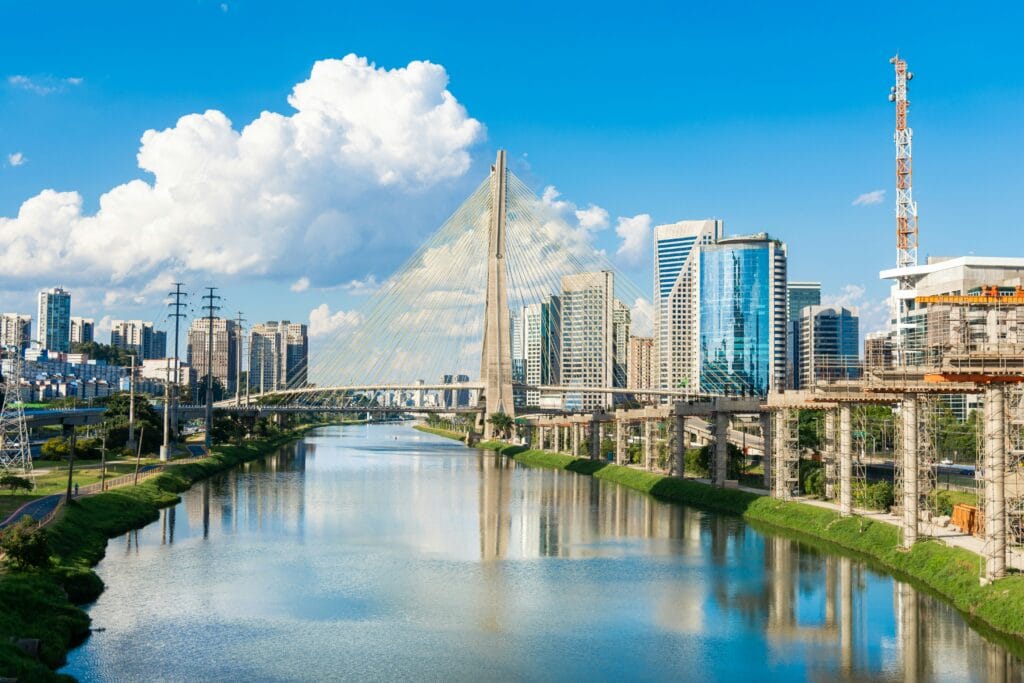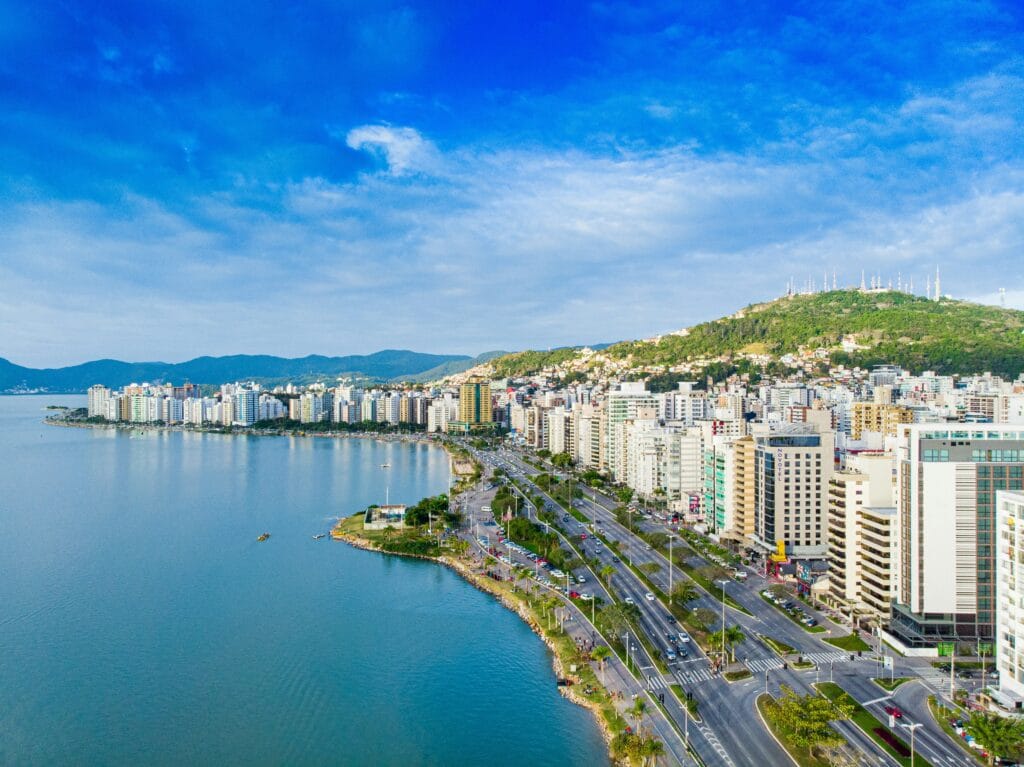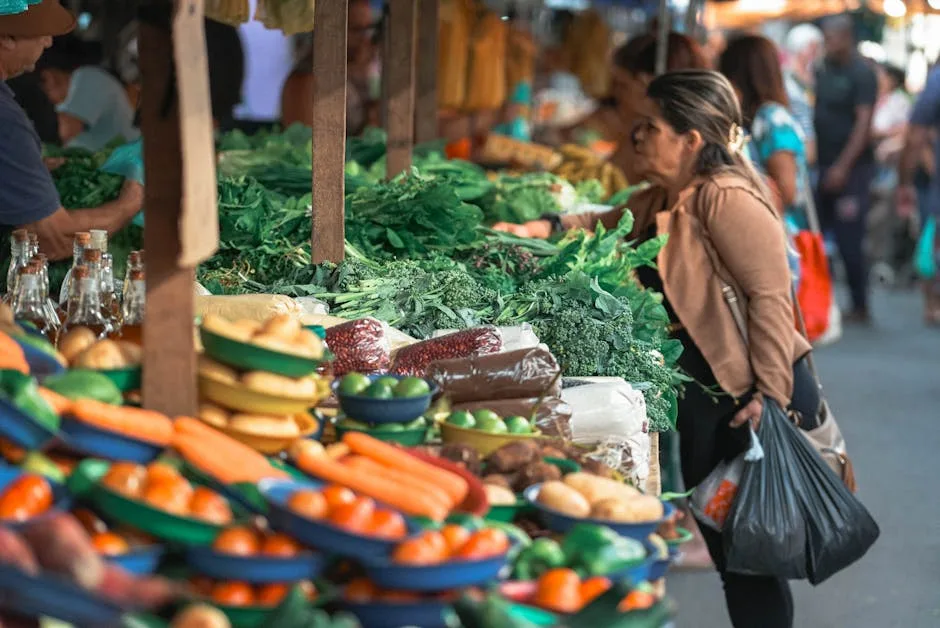Brazil is rapidly becoming one of the most sought-after destinations for digital nomads worldwide, and it’s easy to understand why. Picture yourself working with a view of the paradisiacal beaches of Florianópolis, or opening your laptop in a charming café in Vila Madalena neighborhood in São Paulo while savoring delicious Brazilian coffee that awakens all your senses. For those seeking to combine professional productivity with quality of life, Brazil offers a unique combination of modern infrastructure, affordable costs, and cultural diversity that transforms each workday into a new adventure.
Why Brazil Attracts So Many Digital Nomads
Attractive Cost of Living
One of the main advantages of working remotely in Brazil is the significantly lower cost of living compared to developed countries. In cities like Recife, Porto Alegre, or Belo Horizonte, you can rent a well-located apartment for a fraction of what you’d pay in London or New York. A complete lunch at a local restaurant can cost less than $10, while an espresso at a traditional Brazilian bakery costs just a few cents.
The Brazilian currency, the real, offers interesting purchasing power for those earning in dollars or euros. This means you can live comfortably, experience Brazil’s rich gastronomy, and still explore the country’s natural beauty without compromising your monthly budget.
Growing Digital Infrastructure
Brazil has invested heavily in internet infrastructure in recent years. Cities like São Paulo, Rio de Janeiro, Florianópolis, and Curitiba offer high-speed fiber optic connections that perfectly meet digital nomads’ needs. Many neighborhoods already have internet speeds of 100 Mbps or more, allowing high-quality video conferences and heavy file uploads without problems.
Additionally, the coworking culture is flourishing throughout the country. Spaces like Impact Hub in São Paulo or Órbi in Rio de Janeiro not only offer fast internet and professional environments but also create communities where digital nomads can network and exchange experiences.
Best Cities for Digital Nomads in Brazil
São Paulo: South America’s Economic Hub

São Paulo is undoubtedly Brazil’s financial and technological heart. With over 12 million inhabitants, the city offers robust infrastructure for remote workers. The Pinheiros neighborhood and Vila Madalena are particularly popular among digital nomads, offering dozens of cafés with free wifi, international restaurants, and vibrant nightlife.
The city never sleeps, which means you can find practically any service at any time. Need to print documents at 11 PM? There’s a 24-hour print shop. Want fresh açaí at 6 AM? There’s always an open snack bar. This constant service availability makes São Paulo extremely convenient for professionals working across different time zones.
Rio de Janeiro: Working with a View of Paradise
Rio de Janeiro offers something few cities worldwide can provide: the possibility of working literally facing some of the planet’s most famous beaches. Neighborhoods like Ipanema, Copacabana, and Leblon combine stunning beaches with excellent urban infrastructure.
Sugarloaf Mountain and Christ the Redeemer aren’t just iconic tourist attractions – they become part of your daily routine when you choose to live in Rio. Imagine taking a work break and walking to Ipanema beach to relax, or ending your workday with a caipirinha while watching the sunset at Rodrigo de Freitas Lagoon.
Florianópolis: The Perfect Balance
Florianópolis, affectionately known as Floripa, is considered by many the perfect destination for digital nomads in Brazil. The city combines spectacular beaches with modern infrastructure and a growing tech ecosystem. The Lagoa da Conceição neighborhood is particularly popular, offering sophisticated restaurants, trendy bars, and a growing international community.

The Federal University of Santa Catarina contributes to creating a young and innovative environment in the city. Many students and tech professionals choose Florianópolis as their base, creating a natural network of professional and social contacts for digital nomads.
Salvador: Culture and Creativity
Salvador, the capital of Bahia, offers a completely different experience. The city is a cultural melting pot where music, art, and gastronomy blend uniquely. Pelourinho, Salvador’s historic center, is a UNESCO World Heritage site and offers an inspiring environment for work.
Bahian cuisine is an attraction in itself. Dishes like acarajé, moqueca, and bobó de camarão aren’t just delicious but represent centuries of history and tradition. For digital nomads who value authentic cultural experiences, Salvador is incomparable.
Practical Aspects for Digital Nomads
Visa and Documentation
Citizens from many countries can enter Brazil as tourists for up to 90 days, extendable for another 90 days. This means you can legally stay in the country for up to six months. For longer stays, specific visas are required. The Brazilian government has discussed creating a specific visa for digital nomads, following the trend of other countries.
It’s important to always keep your documents in order and respect legal deadlines. The Brazilian Federal Police is responsible for immigration matters and can provide updated information about regulations.
Healthcare and Safety
Brazil has a universal public health system called SUS (Unified Health System), but digital nomads generally prefer private health insurance for faster access to consultations and exams. Basic plans cost between $100-300 monthly and offer comprehensive coverage.
Regarding safety, like any large country, Brazil has its peculiarities. Cities like Florianópolis and Curitiba are considered very safe, while metropolises like São Paulo and Rio de Janeiro require more attention. The general rule is using common sense: avoiding ostentation, not walking alone late at night in unfamiliar areas, and always keeping copies of important documents.
Bank Account and Finances
Opening a bank account in Brazil can be challenging for foreigners, but not impossible. Banks like Banco do Brasil, Itaú, and Bradesco have specific products for non-residents. Alternatively, international cards work perfectly, and Pix, Brazil’s instant payment system, is revolutionizing transactions in the country.
Many establishments already accept contactless payments and international cards. In major cities, it’s rare to find places that only accept cash, but it’s always good to have some reais for emergencies or small businesses.
The Unique Cultural Experience
Gastronomy Beyond Expectations
Brazilian gastronomy goes far beyond traditional feijoada and churrasco. Each region has its culinary specialties. In the Northeast, you can try stuffed tapioca for breakfast or a grilled queijo coalho sandwich at the beach. In the South, chimarrão is more than a drink – it’s a social ritual that can open doors to lasting friendships.
The Northern Region offers unique Amazonian ingredients like açaí, tucumã, and cupuaçu. Experiencing Amazonian cuisine is like discovering flavors from another planet, completely different from anything you’ve ever tasted.
Festivals and Celebrations
Brazil is famous for Carnival, but the country celebrates year-round. In June, there are Festas Juninas with quadrilhas, bonfires, and typical foods like canjica and pamonha. In October, many cities celebrate Brazilian Oktoberfest, especially in Blumenau, with strong German influence.
Participating in these festivities is an incredible way to understand Brazilian culture and make local connections. Brazilians are known for their hospitality, and invitations to family parties or community celebrations are common when you show genuine interest in local culture.
Nature and Weekend Adventures
One of the biggest advantages of being a digital nomad in Brazil is having access to spectacular natural landscapes on weekends. From São Paulo, you can reach Santos beaches in an hour by train. From Rio de Janeiro, the Lakes Region offers paradisiacal beaches just hours away.
For the more adventurous, Pantanal offers unique photo safaris, while Chapada Diamantina in Bahia has trails and waterfalls that look like movie scenery. The Amazon is an experience every digital nomad should have at least once – navigating rivers and seeing the world’s richest biodiversity.
Practical Tips for Your First Month
Adapting to Tropical Climate
Brazil is a tropical country, which means heat and humidity most of the year. Investing in light clothing, quality sunscreen, and a good fan or air conditioning for your workspace is essential. Many digital nomads make the mistake of underestimating heat’s impact on productivity.
Learning to work at Brazilian pace is also important. Lunch is a serious meal in Brazil, and many local businesses close between 12-2 PM. Adapting to these schedules can be advantageous for networking and local culture integration.
Learning Basic Portuguese
While many Brazilians speak English, especially in tourist and tech areas, learning basic Portuguese will make a huge difference in your experience. Simple words like “obrigado/obrigada” (thank you), “por favor” (please), “desculpa” (sorry), and “quanto custa?” (how much?) open doors and show respect for local culture.
Apps like Duolingo have specific Brazilian Portuguese courses, which differs slightly from European Portuguese. Many digital nomads also take advantage of language exchange – teaching English in exchange for Portuguese lessons.
Brazil offers digital nomads a rare combination of low cost of living, modern infrastructure, cultural diversity, and incomparable natural beauty. Whether you’re a developer seeking inspiration in Rio de Janeiro, a designer looking for São Paulo’s creative effervescence, or an entrepreneur wanting to experience Florianópolis’ balanced lifestyle, the country has something special to offer. Brazilian hospitality, combined with the growing international community of remote professionals, creates a unique environment where work and quality of life meet harmoniously.





